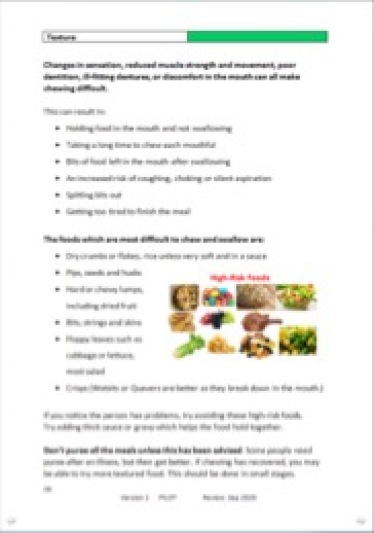I had always thought that a Fellowship was something high flying academics got for doing scholarly research.
I was amazed to find they exist for people like me to support our improvement work. It is such a great opportunity!
I still have a feeling of happy surprise that I have two days clear to work on my project in care homes to support people with dementia to eat and drink well, with a skilled colleague filling in for my regular clinical role. It is like being a child with exactly the Christmas present you wanted!
It turns out the word “fellowship” is very apt in other ways.
Part of the NES AHP Careers Fellowship 2019 is an undertaking to attend a total of 7 contact days at NES. This has made us part of the other kind of fellowship, “a friendly association of people who share a common interest”. We are supported with training on leadership and influencing change, but we are also gaining huge benefit from meeting other Fellows, comparing notes on the challenges and successes, and learning from each other’s experience.
When you make the application for a Fellowship, you state your learning objectives. In spite of this, I didn’t appreciate how much I would need to develop my own leadership skills in order to deliver on the aims of my project. It is easy to be so immersed in the work that you take other people’s enthusiasm for granted, and don’t put enough effort in to gaining their trust and co-operation.
One thing I have learnt is that you can go through the steps of consultation, consensus and collaboration without necessarily getting to the heart of the matter. If you ask the right question at the wrong time you may hear what you want to hear rather than what people are really feeling.
If you are a in a close knit team, you can build ways in to the routine to engage and motivate members, and include them in decision making. It is important for people to have a sense of ownership and feel that their views are listened to and taken in to account.
If the people involved in the project are more dispersed, it is perhaps more difficult to create that sense of common purpose which is key to getting the project off the ground. I have realised that I need to build a “fellowship” of people with a shared goal, and I’m still discovering how to make that happen.
The difficulty is only in the detail. Agreeing the ultimate objective has not been a problem. Our aim is to help staff in care homes gain the self-management skills to support people with dementia who have difficulties eating and drinking, but know when someone should be referred to the Speech and Language Therapy team for assessment and advice. This will help us to target our resources where they are really needed.
After a successful pilot we are rolling out a new approach which we hope will be more sustainable than our training in the past. We have provided a guidance Manual alongside a training session so that staff do not have to remember all the advice– they have somewhere to look it up. It includes a clear pathway and all the necessary forms for recording what has been done and making referrals. We have also involved the Care Inspectorate who will use this as a way of monitoring management of swallowing difficulties in the care home, rather than expecting everybody to have been seen by SLT.

After all the groundwork, training sessions have finally started, so we are in to an exciting phase. It is all looking promising. The next challenge will be demonstrating outcomes!
Rebecca Kellett, Speech and Language Therapist




